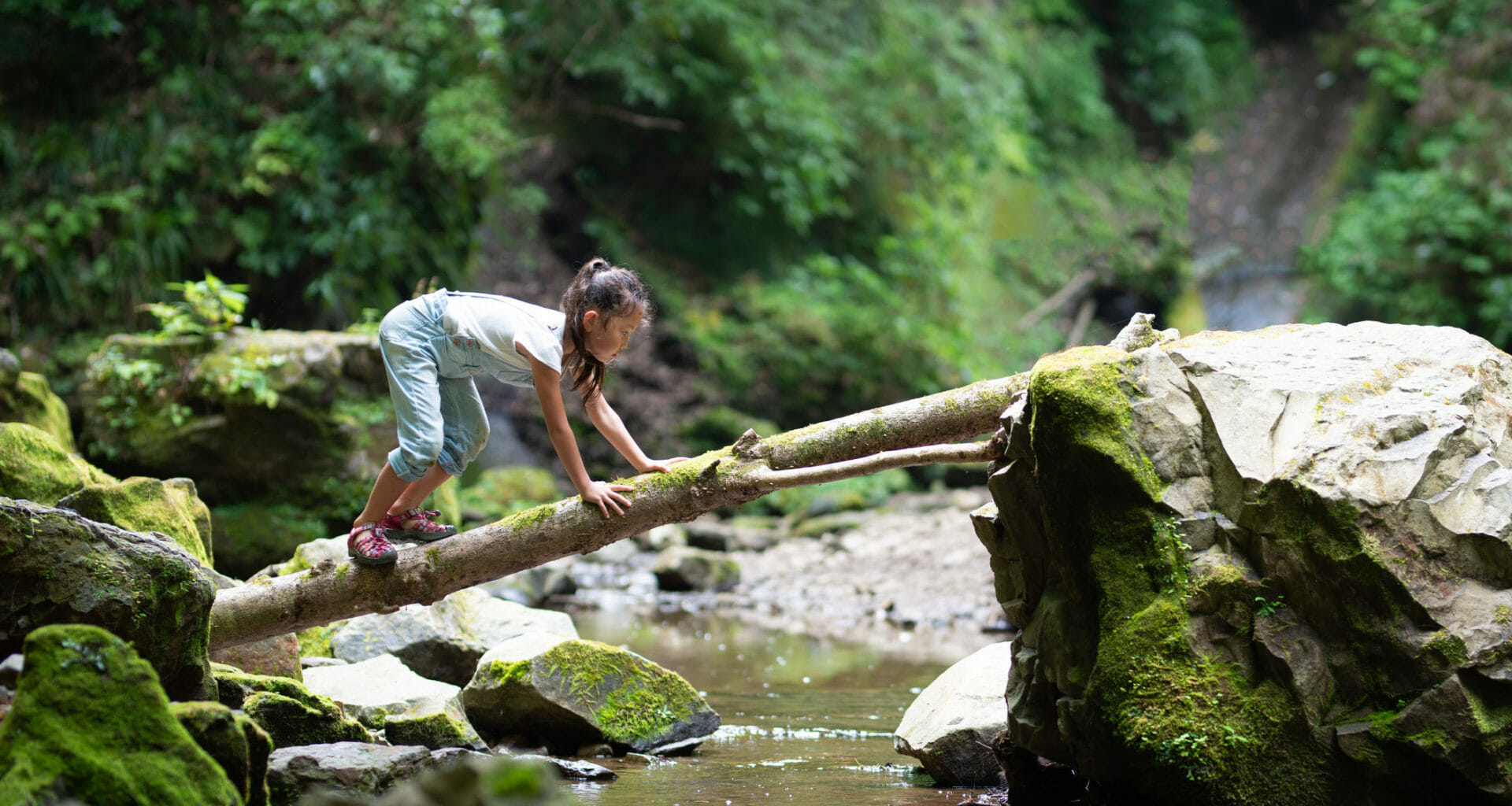Academics fear the Covid-19 lockdown could increase levels of inequality in Scotland because children in deprived areas are stuck at home for longer with often little access to nature.
Researchers at the University of Glasgow told The Ferret that access to green space can have a more positive influence on children from less affluent areas compared to those from richer parts.
The academics – based at the university’s Institute of Health and Wellbeing – are studying how nature and spending time outdoors impacts on children’s wellbeing.
In Glasgow, they are researching the impact of the pandemic on nursery-aged children at outdoor nurseries to learn how attending them influences children’s success in later life.
Dr Paul McCrorie and Dr Anne Martin – both research fellows at Glasgow University – say there is growing concern among researchers studying health and wellbeing that the pandemic may exacerbate inequality.
Dr McCrorie said: “There is a genuine concern. Those children from more affluent backgrounds may still be physically active with their parents, if the parents are in a more flexible work position, and have time to take them outside to the forest or garden space, because they have access to nature and the resources to do so – whereas more disadvantaged children may not have that.
“I know the concern exists that those conditions might drive the widening of inequality.”
Whether or not parents have the time and flexibility to take their children outside, researchers say, determines how much children can benefit from developmental opportunities in nature.
Opportunities children gain from spending time in nature include risky play, the academics said.
“For example when climbing on trees, children learn their own levels of competency of jumping, climbing, landing, these are exceptionally important in terms of long term participation in physical activity when they’re older, it’s important to develop them at a young age,” explained Dr McCrorie.
If poorer children are denied access to nature, they miss out in terms of opportunities to improve their physical health as well as social and interpersonal skills.
Nature may provide a buffer for those people from disadvantaged backgrounds, preventing and reducing the translation into health inequalities.
Dr Paul McCrorie
Dr McCrorie said: “The environment may disproportionately impact people from poorer backgrounds than those from affluent ones. For those living in the greenest areas (compared to those in less green areas), some evidence shows the gap in health outcomes between rich and poor is narrower.
“So nature may provide a buffer for those people from disadvantaged backgrounds, preventing and reducing the translation into health inequalities.
Dr McCrorie added that parents “with employers who recognise and accept loss in productivity without consequence may have better opportunities to spend time with their children”.
He said: “This could mean dedicated time for home schooling (so not losing out in educational developmental opportunities), or it could mean engaging in play indoors. And, with more affluence, tends to come greater access to high quality outdoor space – gardens, nature and public parks and beaches.”
We know that children living in more deprived areas already have far less access to safe outdoor space, and parents are more worried about their children’s use of local play spaces.
John Dickie, Child Poverty Action Group
Child Poverty Action Group in Scotland echoed the researchers’ concerns. John Dickie, director of CPAG in Scotland said: “We know that children living in more deprived areas already have far less access to safe outdoor space, and parents are more worried about their children’s use of local play spaces.
“It’s vital that struggling families get the support they need to give their children the opportunities better off children take for granted.”
There is also concern that lockdowns mean children do less exercise. “On a population level, physical activity in children probably decreased during lockdowns,” said Dr Martin.
“The big problem of the lockdown is that children are discouraged to play together and have less interaction and less opportunity to play with each other. It takes away developmental opportunities for physical health and there are also other parts of child development that may be affected such as how they relate to other children.”
She added: “When we looked further into the evidence that really specifies the environment as nature, where the curriculum is based on being in nature and the philosophy of the nursery is aligned with doing activities with and in nature, we found children’s physical balance, their self-regulation and affinity to the natural world, and play interaction – their ability to engage with other children when they are playing – is all improved, compared to children who didn’t attend a nursery with nature as the main curriculum focus or environment.”
When asked if pandemic conditions would also increase the attainment gap, the researchers said it was too early to know but plans should be put in place to account for this possibility.
“The potential of this should be enough for us to think about mitigating strategies that prevent this from happening. Children are resilient and that will work in their favour,” said Dr McCrorie.
Photo thanks to iStock/Hakase_.














